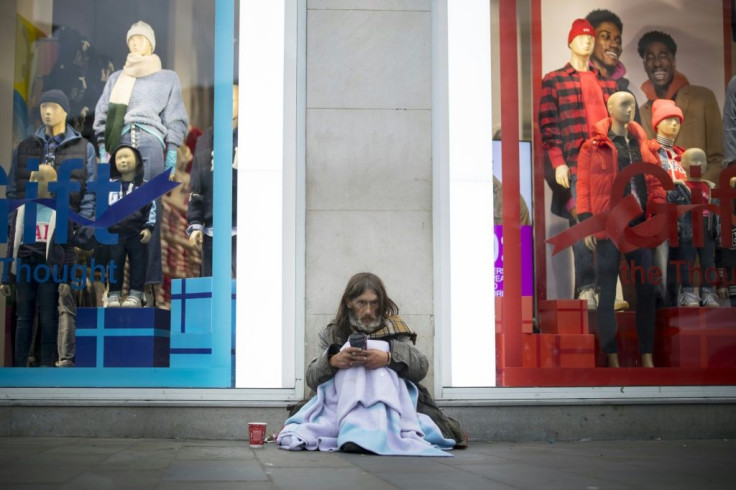Is A Depression On The Way? What US Fed Officials Say About The Long-Term Impact Of Closures

KEY POINTS
- Bullard and Kashkari said the economy's ability to recover will depend on whether we can gain control of the coronavirus pandemic
- St. Louis Fed Chairman James Bullard said he sees unemployment filings increasing in coming weeks
- Federal Reserve Chairman Powell speaks Wednesday during a webcast by the Peterson Institute for International Economics, during which he is expected to reject negative interest rates
The heads of three Federal Reserve banks on Tuesday warned a potential wave of bankruptcies triggered by the coronavirus pandemic could create a lasting impact and send the economy into a depression from which it will be difficult to recover.
At the same time, other regional bank presidents and Chairman Jerome Powell are rejecting President’s call for negative interest rates.
Forty-three governors issued stay-at-home orders and ordered businesses shuttered beginning in mid-March to help stem the spread of COVID-19, resulting in 14.7% unemployment in April and an expected second-quarter contraction of 30%. More than half of the stay-at-home orders remain in place even as plans for reopening the economy are in development and some states take tentative steps.
James Bullard, president of the Federal Reserve Bank of St. Louis said he expects even more unemployment filings in coming weeks but said the economy is likely to bounce back if we can get the widespread testing that would allow people to feel confident about going back to work and into stores.
“If we can get the virus under control, we’d be in good shape as far as the economy goes,” he said.
If not, “you will get business failures on a grand scale and you will be taking risks that you would go into depression,” Bullard warned in a speech Tuesday.
Dr. Anthony Fauci, the head of the National Institute for Allergies and Infectious Diseases, told a Senate committee Tuesday opening the economy too quickly risks an explosion of COVID-19 cases that could set the recovery back.
Despite Trump’s belief the coronavirus-triggered recession will be V-shaped with explosive growth in the second half of this year, Minneapolis Fed President Neel Kashkari said he expected the recovery to be “gradual” and “muted.”
“We’re not going to fix our economy until we get our hands around the virus,” Kashkari said during a virtual event. “We might just have this uneven crawling back up to more of a normal economy.”
Dallas Fed President Robert Kaplan said the economy needs more fiscal stimulus. The remarks came as House Democrats unveiled a $3 trillion coronavirus relief package that includes more direct payments to individuals and funds for small businesses.
Trump started the drumbeat again Tuesday for negative interest rates.
However, Kaplan told CNN International, along with Bullard, Kashkari, Richmond Fed President
Thomas Barkin and Chicago Fed President Charles Evans, said he would not favor such a move because of the effect it would have on “on intermediaries, on money markets. I'm a skeptic whether negative interest rates would actually be helpful, or whether the help would be outweighed by the harm it would do to the financial sector.”
Chairman Jerome Powell is expected to reject the idea in a speech Wednesday to be webcast by the Peterson Institute for International Economics.
Mark Cabana, head of U.S. short rate strategy at Bank of America told CNBC negative interest rates are a “tax on savers.”
The federal funds rate already has been cut to the zero to 0.25% range.
© Copyright IBTimes 2025. All rights reserved.





















